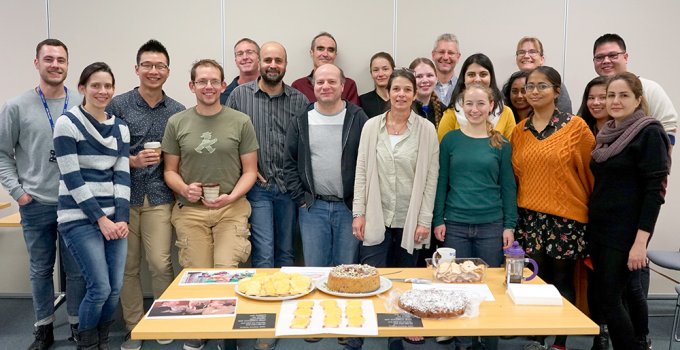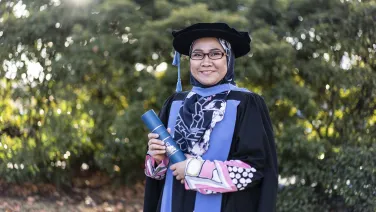ANU Parasitologists celebrate new international graduate school
Parasitologists at RSB, JCSMR and the Centre for Advanced Microscopy are celebrating a new dual PhD program that pairs ANU with Humboldt University in Berlin, Germany.
The International Research Training Group, ‘Crossing Boundaries: Molecular Interactions in Malaria’ is a partnership between ANU and Humboldt University of Berlin, and has been funded by the German Research Foundation.
This International Graduate School has two main objectives: Conducting cutting-edge research in biology, computation and medicine with the view to develop novel drugs and/or vaccines against malaria and providing a comprehensive program for PhD students to train independent, innovative and interdisciplinary researchers that are able to deal with complex problems and can perform on an international stage.
Students accepted to the program will enrol at both universities, must spend at least 12 months in the other city, and will graduate with PhDs from both institutions. A feature of the degree is that students will have the opportunity to do industry internships, and collaborate with non-university companies and institutions, such as the World Health Organisation, NGOs, publishers and pharmaceutical companies.
The idea grew after Associate Professor Alex Maier, from the Research School of Biology at ANU, spent some time in Berlin on an Alexander von Humboldt Fellowship. He and his host Professor Kai Matuschewski felt that the synergy between ANU and Humboldt University was exceptional, and looked for ways to continue and broaden the collaboration.
“Humboldt University has very strong theoretical expertise in Malaria and various model systems”, said Alex Maier. “They conduct field work in Africa and develop theoretical models. Equally, ANU has a significant amount of malaria researchers with very strong organismic expertise in the parasite and its mammalian hosts, as well as know-how in physiology and transporter biology.”
The first intake for the new graduate program will be in September, followed by another intake in February 2018. Click here for more information, and to apply for the program.


